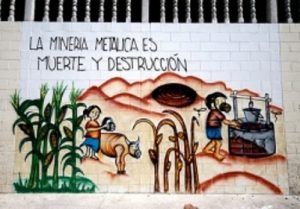Sister Cities
Protests Against US Foreign Policy Welcome President Obama to El Salvador
President Barack Obama´s visit to El Salvador was met with protests by various sectors of Salvadoran society, from campesinos to students and even U.S. Citizens. With so many strong criticisms of U.S. foreign policy, the protests could not be contained in a single day of action.
{mosimage}The various different marches that blocked off streets and took over public areas were led by different organizations, but all had the common message against U.S. imperialism and intervention in Latin America. More specific demands included an end to U.S. led militarization in the region, the repudiation of the Honduran coup government, an end to the Cuban trade blockade, an end to CAFTA, immigration reform and recognition of the U.S. government’s bloody role in the Salvadoran civil war. Some protesters also voiced concern over a possible U.S. military intervention in Libya.
The first march of about six thousand people took place March 21st and ended at the U.S. Embassy where a delegation from the march presented a letter with a list of demands. On March 22nd, CRIPDES, the MPR-12 (the Movement of Popular Resistance), the Roundtable Against Metallic Mining and Salvadoran networks in solidarity with Honduras held a rally at Salvador del Mundo. A bus of Hondurans attended the rally and Sister Cities raised funds for buses that brought community members in from various parts of El Salvador, including Suchitoto, La Libertad and Cabañas. Sister Cities was also very visible at the march, thanks to the presence of a delegation from Manhattan and Lawrence, Kansas. Sister Cities volunteer Emily Carpenter also addressed the crowd and Salvadoran and international press to express North American solidarity with the demands of the march. Thank you to those in the Sister Cities network who donated so generously to help people from outside of San Salvador attend this rally.
{mosimage}In the afternoon, several student organizations staged marches and rallies with the smae demands of autonomy for Latin America. In the evening, as Obama prepared to visit the tomb of Monseñor Romero, protesters gathered outside of the National Cathedral to protest the US involvement in the Salvadoran civil war and the lack of a real change in US foreign policy. Finally, on March 23rd, as the Obama´s made their last stops in El Salvador, Salvadorans rallied again at the monument Salvador del Mundo.
The protests were covered by a very large number of news sources, including the Associated Press and TeleSur. To see video coverage go to:
http://www.telesurtv.net/secciones/noticias/90645-NN/organizaciones-sociales-salvadorenas-rechazan-visita-de-obama/#%C2%A0
http://www.youtube.com/embed/8YerqBqbFhE (video by SHARE of the March 22nd rally)
{mosimage}President Obama’s visit to El Salvador also called the attention of the international anti-mining movement. Over 140 international social organizations, including U.S.-El Salvador Sister Cities, the Sierra Club, Public Citizen, CISPES, and WOLA, signed a letter to President Obama highlighting the dangers of CAFTA and the investor rights protected in free trade agreements.
The letter states that “rather than supporting El Salvador’s commitment to protecting its citizens and environment, the United States, through its current trade policy, is allowing companies to punish the people of El Salvador for pursing those objectives.” The letter calls on President Obama to publicly state his opposition to the Pacific Rim case against the Salvadoran government. It also demands the President state his support for revising CAFTA and for the Salvadoran governmen’s investigations into the murders of anti-mining activists. Lastly, the letter calls on the President to prevent making similar mistakes by eliminating investor-state private enforcement mechanism in pending free trade agreements with Korea, Panama and Colombia.
{mosimage}Social organizations weren’t the only ones to weigh in on the matter. A similar letter was signed by 19 Congressional Representatives and reiterated the same main demands. The letter was sponsored by Tammy Baldwin (WI), Michael Michaud (ME), Donald Payne (NJ) and Peter Defazio (OR). Two of the four sponsors (Baldwin and Michaud) were contacted, cajoled and convinced by our very own Sister Cities committees. The letters received attention in the U.S. and Salvadoran press and was published in a paid ad in one of the major Salvadoran newspapers.
To see a copy of the organizational and congressional letters click below:
President Obama organizational sign-on
President Obama congressional sign-on
To read the Mesa's take on Obama's visit click here .
he International Coalition against Mining in El Salvador also organized a press conference which caught the attention of CNN en Español which arranged a special interview with Hector Berrios of the National Roundtable against Mineral Mining. The interview was supposed to be 7 minutes long but was cut off after 4:30 minutes, when the journalists interviewing Berrios tired of his strong criticisms of CAFTA and the U.S. trade policy. At the end of the interview one of the flustered journalist interrupted Berrios and declared that free trade agreements benefited Central America because they increase the most important export to the United States: undocumented immigrants. When Berrios implied this was actually a negative result of right-wing government policies, the journalist cut off Berrios mid-sentence and concluded by saying “I don’t know if they are from the right or from the left but I see [Salvadoran immigrants] working and producing in Miami, and so many more should come.” Clearly, these journalists have a lot to learn about about free trade agreements, immigration and Central America.
To watch the interview with Hector Berrios click here: CNN interview

